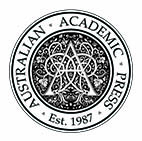AU$36.95
The Art of CBT: Individualised strategies to respond to common obstacles in therapy
By Chris Basten
"A must-read for trainees learning CBT and also for those experienced in CBT."
"The case examples, tips, and handouts will help clinicians to ensure that they are on track (and importantly stay on track!) with their clients”.
A master class in CBT — discover the art within the science of evidence-based practice.
Chris Basten is a highly experienced therapist who has worked in public health and the private sector for over 25 years. He regularly trains psychologists and other health professionals in CBT and motivational interviewing. Now you can benefit from his clinical wisdom, years of practice, and study of the therapy process, distilled into this unique practical handbook.
The Art of CBT provides structured strategies and tips for any therapist who encounters common challenges, such as:
- poor compliance with homework,
- emotional avoidance,
- the client struggling to identify which cognition to target,
- difficulties maintaining boundaries, and
- trouble dealing with the harder parts of CBT.
Chapters include content on building and maintaining motivation, and how to keep therapy focused and on track. An examination of the therapeutic relationship offers a concise summary of a wide-ranging topic area that even experienced clinicians will find illuminating. A chapter on cognitive therapy includes creative ways to uncover automatic thoughts and some new ways to engage all levels of cognition into therapy more easily (metacognitions, hidden assumptions, hot cognitions, rules and core beliefs). Readers will also discover a checklist to ensure that your behavioural experiments are effective.
Also included are practical ideas for building case conceptualisations or individual formulations, encompassing where to start your formulation sketch, how to use multiple formulations for the one client, establishing a rationale for treatment and incorporating comorbidity. The individualised nature of therapy is encouraged consistent with a transdiagnostic approach to complex psychopathology. The highly readable text is supplemented by practical examples of therapist statements and client case examples that unfold as you read. It is ideal for clinicians who wish to practice an evidence-based therapy but need to adapt CBT flexibly to negotiate the roadblocks that so commonly occur in the therapy process.
While CBT textbooks and manuals have their limits, The Art of CBTis the essential clinical handbook for all CBT practitioners.
About the Author
Dr Chris Basten is a highly experienced clinical psychologist with particular interests in health psychology, eating disorders and motivational interviewing. He has completed degrees in psychology at the University of NSW (Bachelor of Arts) and the University of Sydney (Master of Psychology and PhD). Chris has more than 25 years’ experience in clinical settings including private practice, vocational rehabilitation and public hospitals. For the last 10 years he has focused on his own practice and training psychologists and other health professionals CBT and motivational interviewing.
ISBN 9781925644302
Softcover 168 pages
Released 2019
Praise for The Art of CBT
"This book summarises much of our current understanding of state-of-the-art CBT into an engaging and easily accessible format. A must-read for trainees learning CBT and also for those experienced in CBT when they need ideas about why they are not making progress with a client. A very readable book that brings together evidence and clinical experience to provide a rich overview of how to maximise the effectiveness of CBT.”
— Professor Tracey Wade, Matthew Flinders Distinguished Professor of Psychology, Flinders University
"The true value of this book is its focus on practical and evidence-based solutions to common problems that arise in psychotherapy. Many books focus on what do to, but few focus on what to do in the face of obstacles to client engagement and change. Chris’ expertise in individualised case formulation, motivational enhancement, and promotion of a strong therapeutic alliance, together with his commitment to evidence-based and evidence-informed practice, make this a ‘must read’ for trainee and experienced clinicians alike. Using detailed and ‘real world’ clinical examples, Chris illustrates how a clinician can integrate nomothetic (diagnosis, theory) and idiographic (functional analysis, case material) information into a cohesive case formulation and treatment plan. Importantly, the book clearly describes how therapists can provide evidence-informed treatment while maintaining a close eye on therapeutic process to optimise client engagement and outcomes. The case examples, tips, and handouts will help clinicians to ensure that they are on track (and importantly stay on track!) with their clients so that their therapy is as effective and efficient as possible.”
— Professor Peter McEvoy,School of Psychology, Curtin University

